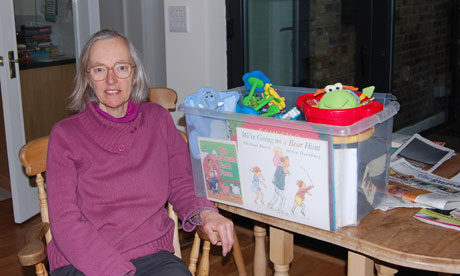Author Archives: wendy
Weaving the words of dementia patients into poetry
Words of dementia sufferers woven into poetry by Susanna Howard
Saturday 23 March 2013
A poet is working with dementia patients to
weave their words into poetry. Susanna Howard, sits with them, often in silence,
jotting down whatever words they utter, and then uses only these utterances to
put a poem together for her collections, Living Words.
The results are poignant and profoundly emotional. At times, they also hint at the failings in our care system. “So many people are saying they want to be cared for and how to be cared for, that they are not listened to, that they are not heard. They are saying ‘this is what I want. This is what I need’,” says Howard.
She works with the terminal patients as well as the elderly, and says healing through words can’t be underestimated. Her refreshing approach exposes the lie behind the cliche of dementia as the “silent” living death. “I think we have a wealth of words inside us throughout our lives and when you have dementia, they are still inside you”, she says.
Howard, whose work has been funded by the Arts Council in the past, has created an innovative collection of poetry books in collaboration with dementia suffers, even though with advanced states of the degenerative illness.
Poems from a recent residency, staged in collaboration with EnglishPEN, can be viewed on 9 April at Europe House, in London.
Proposed changes to mental health services in Norfolk and Suffolk
Proposed Trust Service Strategy
Trust Service Strategy – how you can have your say
Clinicians in Norfolk and Suffolk have been proposing changes to mental health services for the next four years. The proposals were sparked by budget challenges facing the whole of the NHS – NSFT is facing a 20% reduction in its spend in four years’ time compared with today.
But rather than just make cuts, our clinicians are seeing this as an opportunity to redesign services which are fit for the future and offer real alternatives to hospital care and the care we currently provide. Everything has to fit within our new budgets, but of more importance is the need to make sure all services provide good and safe outcomes for service users and their family carers.
Family Link giving family carers a much needed break
A day in the life of … a volunteer respite carer
To mark Share the Care week, Margaret Pedler wants to encourage others to sign up to help families with severely disabled children
-
Margaret Pedler
- Guardian Professional,

My husband Andy and I have been part of Southwark council’s Family Link programme for two years; we spend one day a month looking after a little girl with complex physical needs.
I wanted to find a way to put my spare time to good use and work with children, but couldn’t sign up to the full-time commitment of fostering. Instead I saw an advert for Family Link, which trains local volunteers to help a family stay together by offering respite care.
Looking after a disabled child is a full time, 24-hour-a-day role and can only be sustainable if parents can get respite, while knowing someone is there to allow them some time for themselves or their other children.
The application process was very comprehensive and took some time. Southwark council takes great care in gauging your ability to take on such a responsible role. People who are parents might have some experience but we don’t have children, so it’s not a pre-requisite.







